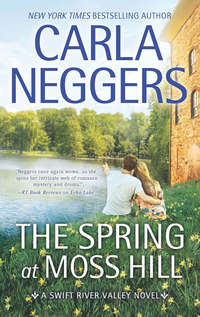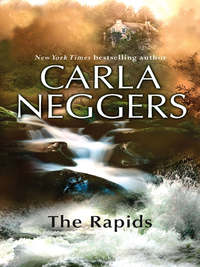
Полная версия
Thief's Mark
Martin glanced behind him at the empty spot along the hedges. Oliver had left his Rolls-Royce there last night, instead of parking it in the garage. “Oliver mentioned last night he wanted to go out today.” Martin heard how distant his voice sounded—his tone one of shock, disbelief—but at least the nausea had passed. “I noticed when I went down to meet you at the potting shed.”
“Did he say where he planned to go?”
“No, he didn’t. I’m not sure he had a plan.”
Henrietta adjusted her skirt, which had gone askew in the charge up to the house. “Why would he run?” she asked, her tone neutral.
Martin didn’t answer. It was a loaded question, anyway.
She peered at the dead man. “I haven’t seen him before that I can recall. Have you?”
The woman was relentless. MI5 wasn’t far-fetched at all. “I don’t think...at least I’m not certain...” Martin stopped himself. He didn’t need to speculate and didn’t want to lie, but he hated stumbling around for what to say, no matter the provocation. Time to get hold of himself. “I can’t say for certain I’ve seen him before. We get a lot of walkers on the south lane this time of year. I seldom pay attention to them.”
“All right, then.”
He heard the skepticism in Henrietta’s tone but let it be. He glanced at the dead man, hoping to take in more details of his appearance, but he felt another surge of nausea and turned his head quickly, if too late. He’d seen enough. Much of the man’s blood had emptied onto the landing and oozed onto the pavement. What a dreadful sight it must have been when he was alive, his heart pumping arterial blood. Martin hadn’t noticed blood on Ruthie, but Oliver, if he’d been helping this man, surely he would have been sprayed with blood.
Martin felt the bottom of his shoe stick to the pavement. He looked down and saw he’d stepped in a smear of blood himself. Ruthie hadn’t exaggerated. There was a great deal of blood. He felt bile rise in his throat. “Someone else could have taken the car,” he said, forcing himself to keep his wits about him. “There are several routes on and off the property. One of the workers or a walker might have seen the car leaving and might even be able to identify the driver. Ruthie was in a panic. She could have been mistaken and it wasn’t even Oliver she saw.”
“Perhaps,” Henrietta said.
She was humoring him. Martin felt a surge of irritation but knew it wouldn’t help. She was right. Of course Ruthie wasn’t mistaken. “My point is we don’t have enough information to draw any conclusions.” He stared at the open door. “I shouldn’t wait. I need to search the house—”
“No, Martin. The police will be here shortly. They’ll check the house. They’ll deal with any possible intruders or additional casualties. We’ll only muck things up sticking in our noses now.”
Her self-assurance, decisiveness and brisk efficiency snapped Martin out of his stupor of shock and worry. If not oblivious to the blood and death at their feet, Henrietta was remarkably focused and steady. No panic, no wild speculation, no fear.
He turned to her with a cool look. “You speak with authority for a garden designer.”
She gave the smallest of smiles. “One learns to be decisive when planning gardens.”
No doubt true, but he was now convinced she was MI5. Her grandfather, Posey’s older brother, Freddy, had been a legend with Her Majesty’s Security Service. Henrietta obviously took after him—except for the heavy smoking and penchant for opera.
“Come.” She pointed toward the edge of the driveway, where the hedges grew tall. They were an item on the long list of garden-related tasks, but Martin saw she was pointing at a stone bench that had occupied the spot in front of the hedges for decades. “Let’s have a seat there, shall we? The police will be here in a matter of minutes.”
Martin followed her to the bench but he didn’t sit. She did, crossing one leg over the other, skirt only slightly askew. He peered at the dead man, attempting to absorb the details of his appearance, his attire, his injuries. They were a jumble. He was reeling, fighting a sense of urgency that had purpose but no direction. “Is anyone in the house?” he shouted. “Do you need assistance?”
Henrietta frowned at him, but he ignored her. He remembered his solemn promise to Priscilla York he would look after her only grandson. She’d known it would be difficult. “Oliver has his ways, Martin. Don’t be too hard on yourself when he goes astray, as he surely will.”
He steadied himself, taking in the pungent scent of the evergreen hedges. He calmed himself and peered again at what he could see of the man sprawled at the door—what was clear and not out of his view or blurred by fear, shock, adrenaline and horror.
The man looked to be in his fifties.
The right age.
Martin allowed himself a moment to listen to birds singing in the trees behind him, but he couldn’t do it. He felt himself being transported to the past, against his will...to the arrival of the police and the unfathomable news that Charles and Deborah York were dead—murdered in their London home—and their young son was missing. At that moment, his own life had been forever changed. He’d been here on the farm. He’d wanted to run, as he did now.
He’d located Nicholas and Priscilla and sat vigil with them through those tense, grief-filled days, every second seared into his memory. Eight-year-old Oliver had escaped from the Scottish ruin where the two men who’d killed his parents had taken him, with the hope of earning a hefty ransom in exchange for the boy’s safe return to his family. A priest out for an early morning walk had come upon him and taken him to safety. Young Oliver identified the killers and kidnappers as Davy Driscoll and Bart Norcross, two men in their midtwenties who had done groundskeeping and a variety of odd jobs in London for Charles and Priscilla. They’d worked on a contract basis and had quit a short time before the murders.
Physical and circumstantial evidence confirmed the boy’s eyewitness account.
For their part, Driscoll and Norcross disappeared as if into thin air.
Until today.
Martin raked his hands through his grayed hair. He was aware of Henrietta silently watching him from the bench, but he didn’t care. He could be letting his emotions get the best of him. He could be wrong and it wasn’t Davy Driscoll lying dead before him.
He didn’t need to panic or go off half-cocked. He hadn’t known either killer well. They were wanted men. With no credible sightings of them and no leads, surely they’d altered their appearance and adopted new identities.
The face of the dead man, the line of his jaw, his slight build, his age...
Was he Davy Driscoll?
Martin sighed heavily. He was certain it was.
Almost.
He wondered how the dead man had sustained his fatal injuries. A knife wound? A gunshot? Martin hadn’t heard gunfire and assumed no one else had, either. He shuddered. Never mind the shock that had seized him—he made no pretense of expertise in violent death, whether accidental, self-inflicted or the work of another.
He could hear approaching police cars. The York farm had always been a refuge, not just for Oliver, but for him, too—for all those who loved the land, its history and the family. The violence done to Charles and Deborah and their young son had occurred in London, not here.
“Alfred...” Martin bit back fear. “He was here when I left the house.”
“Oliver didn’t bring him to the potting shed. He probably returned Alfred to your cottage before he came down.”
It had to be the case. The puppy would have been out the open door, yapping at their feet by now, and he was trained to stay close and wouldn’t have gone far. Martin shut his eyes. “Oliver,” he whispered, “where the devil are you?”
“Good question,” Henrietta said.
He opened his eyes and turned to her. “You weren’t supposed to hear that.”
“I know.”
She didn’t look ruffled by his gruffness. She seemed sincerely troubled by the day’s events, but if she was MI5, she’d be able to fake sincerity. “Oliver isn’t a killer,” Martin said.
Henrietta turned by a tall, cracked stone urn. Her eyes had an unexpected, genuine warmth to them. “Of course he isn’t.”
3
London, Heathrow Airport
Emma eased toward an empty carousel, away from the throngs in Heathrow’s crowded baggage claim. She hadn’t expected a call. It was an unknown caller. She almost let it go to voice mail but instead answered with a simple hello, without using her name.
“Dear Emma. Where are you?”
She recognized Oliver York’s voice and slowed her pace. “Heathrow. Did you get my voice mail?”
“This morning. Yes. You and Colin want to see me. Why?”
“We’ll come to you. Are you in London or at your farm?”
“I didn’t do it.”
Emma went still. His voice was ragged, barely a whisper. This wasn’t the irreverent, relentlessly good-natured Oliver York she knew. “Do what, Oliver?”
“I didn’t kill that man. I tried to help him. I don’t know if it was murder, suicide, an accident. I don’t know anything. Tell the police. They’re looking for me.”
“Oliver, talk to me. Where are you?”
“I’m going dark. I trust you. Trust me. Colin and I will never be friends now.” His attempt to return to his natural cheekiness fell flat. “I hope you two had a fabulous honeymoon.”
“I can’t help you if you go dark,” Emma said. “We’ll come to you.”
He was gone.
She slid her phone into her tote bag and rejoined Colin at their baggage carousel. He’d collected their bags, hers a wheeled case, his a duffel he had slung over his shoulder. They’d packed more than they would have for a typical business trip. They’d put together the meetings at the last minute but were dressed professionally in clothes that had seen them through nights out in Ireland.
She told him about Oliver’s call. “He’s in trouble, Colin.”
“Damn right he is. I just got a call from my MI5 contact. Oliver took off from his farm this morning and left behind a dead body.”
“Who?”
“They don’t know yet. It was a quick call. He wants our help. He’ll pave the way for us to talk to the detectives.” Colin hoisted his bag higher on his shoulder. “Looks as if we’re renting a car and driving to the Cotswolds instead of taking the train into London.”
Emma absorbed the change in plan. She didn’t know Colin’s MI5 contact, just that they’d met during his first undercover mission five years ago. She raised the handle on her bag. Matt Yankowski, their boss in Boston, would want to know she and Colin had landed in the middle of a British death investigation involving Oliver York. “We need to check in with Yank.”
“Have at it.”
“It’s your MI5 contact.”
“It’s your art thief on the lam and your grandfather whose house was broken into. If we walked into a bunch of arms traffickers, I’d make the call. I’ll rent the car.” He dipped a hand into her jacket pocket and withdrew her phone, then folded her fingers around it and winked. “Tell Yank I said hi.”
“All right. It does make sense that I make the call. I’ll check with my brother at the same time to see if he knows anything about the break-in.”
Colin took the lead as they switched their route and started toward the car rental kiosks. Emma unlocked her phone and hit Yank’s cell phone number. It was early in Boston but Yank picked up on the first ring. “I just had a call from MI5. They know you’re in London and called Oliver York this morning, asked if you have an idea where to find him. Imagine that.”
“We don’t know where he is. Do they know the identity of the dead man?”
“Not yet. Where’s your grandfather?”
“I haven’t been in touch with him since we left Dublin. We stopped to see him on the way to the airport. He was having tea on the terrace.”
“Has Oliver been in touch with him?”
“Not that I’m aware of.”
“Will he now that he’s on the run? Those two have an unusual friendship.”
“Anything is possible,” Emma said.
“Keep me posted. I’ll see what we can do on our end.”
Yank disconnected without further comment. A short conversation. Emma pictured him at his Back Bay apartment with his wife, Lucy, a clinical psychologist who’d opened up a knitting shop on Newbury Street after balking at moving from their home and her work in northern Virginia. As unorthodox and risky as his brainchild, HIT, was, Yank was a straight arrow. Late forties, chiseled good looks, crisp suits and dedicated to the FBI. He’d known what he was getting into when he’d gone after her—an ex-nun and a Sharpe—to join the FBI and then to become a part of his unique team.
She dialed an art-crimes detective she knew at Scotland Yard, and he put her in touch with the detective chief investigator leading the inquiry into the death at Oliver York’s farm. He listened attentively and instructed her and Colin to come straight to the farm when they arrived in the village.
The calls to her grandfather and her older brother, Lucas, who ran Sharpe Fine Art Recovery, were easier. Neither answered. She left voice mails and caught up with Colin. He had the paperwork finished for their rental car. They’d be on the road to the Cotswolds in no time.
“How’d it go?” he asked her. “Did Yank ask if we had a good time on our honeymoon?”
“He did not. I wish we’d run into arms traffickers. They’re more straightforward than Oliver York.”
“But nowhere near as charming.”
* * *
A few minutes later, they were on the road, heading west to the rolling hills and classic honey-stone villages of the picturesque Cotswolds. Colin was doing the driving. Emma was preoccupied, thinking about Oliver’s call. “You know this has something to do with the break-in at Granddad’s.”
“What do you want to do?”
“I left him a voice mail. I left Lucas a voice mail, too. I’ll try Granddad again.”
She was almost surprised when he answered. “Emma,” he said. “You’re in London?”
“Just landed. What are you up to?”
“Contemplating finding a hardware store to fix my broken window.”
That didn’t sound suspicious, and there was nothing suspicious about his tone. “Has Oliver York been in touch by any chance?”
“No.” A pause. “Why?”
“Something’s happened. I’m not sure what I can tell you at this point. Let me know or let the gardai know if Oliver gets in touch. And keep your doors locked.”
“Don’t talk to strangers and drink my milk. Got it.”
“Granddad...”
“It’s okay. I can tell whatever’s going on is bad.”
“I just want you to stay safe.”
“Always,” he said.
Colin glanced at her after she’d hung up. “First day back on the job,” he said.
She stared out the window at the busy motorway. “It’s going to be a long one.”
4
Near Stow-on-the-Wold, the Cotswolds, England
Henrietta walked home after the police finished with her. They’d blocked off entrances onto the York property, including the lane that ran past the dovecote potting shed and was part of a waymarked trail. Walkers out for the day, unaware of the events that morning, would have to take a detour, at least until the scene was cleared. Henrietta had witnessed deaths and seen corpses in her previous life but never one involving a childhood playmate as a witness—a man as enigmatic, frustrating, larcenous, tortured and sexy as Oliver York.
He was maddening, and he was the reason she had quit MI5.
That was the short answer, at least.
She continued along a dry wall, constructed God knew when, of the region’s ubiquitous yellow limestone. Oolitic Jurassic limestone, it was called. She’d thought she’d needed to know that as a garden designer, but no one had yet to ask. She wasn’t concerned about running into a mad killer. The police hadn’t been, either. She’d take care, of course, but whatever had happened behind her at the York farm, it hadn’t been random.
She crossed a bridge over the same shallow stream that ran behind the York dovecote. The paved lane would eventually take her into the village, but she needn’t go that far—never mind the temptation to. It’d been a day. She’d love nothing better than to spend the rest of it at the pub.
Instead she turned onto a narrow lane, lined with more honey-stone walls, and came to what was still known as the Balfour farm. Her great-grandparents had purchased it in 1909 as a country home and working sheep farm. They’d proceeded to have three children—Freddy, Posey and Anthony—and had left the entire property to Freddy, the eldest Balfour and only surviving son, Anthony having died young. Freddy had promptly turned over most of the acreage to tenant farmers. He’d spent holidays—not every holiday—at the house and let friends and colleagues use it for getaways, but he’d never had a great affinity for the Cotswolds or country life. Surprisingly, he’d moved to the farm after he lost his wife to a stroke. Widowed, his only son busy with his own life in London, Freddy had enjoyed several good years before he developed lung cancer and died in his Cotswolds sitting room at age seventy-seven. Henrietta had been only five, but she remembered him, her chain-smoking grandfather with the kind eyes. She hadn’t known then, of course, that Freddy Balfour was an MI5 legend and British hero. That had come later.
Posey Balfour had fallen in love with the Cotswolds as a young girl and couldn’t imagine living anywhere else. The family had carved out a lot for her, and she’d built her own home, where she’d stayed, content, for the next seventy years. Henrietta’s father had sold the rest of the original farm after Freddy’s death. As far as she knew her dad had never considered keeping it.
She came to her great-aunt’s house.
My house now.
She was relieved to see only her Mini and not Oliver’s Rolls-Royce in the drive.
A silly thought, that he might have come here.
“Blast it, Oliver, where are you?”
Normally she would drive to work in order to haul tools, pots, seedlings, bags of soil and supplies—her Mini amazed her with its hauling capacity—but that morning she’d walked. She’d been working at the York farm for two weeks straight and had everything she needed there. The day had started with sunshine, but she enjoyed walking even in less-than-lovely weather.
She felt tense as she unlocked her front door. After twelve years with MI5, she liked to think objectivity and emotional distance had become natural for her. She’d managed in the midst of the crisis, with Ruthie Burns in a state and Martin Hambly about to have a stroke, but now, on her own, she was anything but objective and distant. It wasn’t that she was out of practice. She’d only left MI5 in March. It was that today involved people she’d known her entire life. Friends, neighbors, villagers.
Oliver.
She fumbled with the door lock. His fault, damn him.
She got the door open and felt her tension ease the moment she crossed the threshold. Posey had died in her sleep of general organ failure at ninety-four and left the house to Henrietta and small inheritances to Henrietta’s father and his cousin, Anthony’s only son.
Posey would have relished a mysterious death in the village, provided it wasn’t too gruesome and involved someone who’d had it coming. Henrietta had yet to figure out what to do with her great-aunt’s daunting collection of cozy mysteries. They lined the study shelves and filled more than one cupboard.
She went back to the kitchen and filled the kettle with water and set it to boil. In addition to the kitchen, the house consisted of a sitting room, study and powder room on the ground floor, and, upstairs, two slanted-ceiling, dormered bedrooms and a bathroom. Posey had had the house built to her standard. She’d decided on new construction rather than selling the lot and buying an existing house. She would never have had the patience to fuss with anything listed or mildly historic that would require her to follow rules and regulations and entertain unsolicited opinions from villagers. “I didn’t want my house to be the subject of postcards, tourist photographs or chocolate boxes,” she’d told Henrietta more than once.
Posey hadn’t cleared out a single possession before her death. Henrietta knew she needed to get on with sorting what didn’t suit her. Sell it, give it away, toss it. It seemed like a daunting process at the moment. Of course, it wasn’t. Surveillance and penetration of a violent cell bent on mass murder were daunting. Deciding what to do with Aunt Posey’s stacks of murder mysteries was emotionally challenging but hardly the same.
As she waited for the kettle to boil, Henrietta gazed out the kitchen window at the glorious June blossoms. As plain as the house was, the gardens were incredible. They were Posey’s creation and had been her greatest joy. Pink foxglove, cobalt-blue delphinium, white daisies, artfully placed grasses—Henrietta let the burst of color soothe her. In the months since her great-aunt’s death, she had maintained the gardens, at least to a degree, without touching their essential structure. The rose trellis needed replacing. Most of the perennials needed thinning and a good chop. She’d get to it all one of these days.
How far would Oliver get in his Rolls-Royce? It wasn’t an inconspicuous vehicle.
Henrietta shook off the intrusive thought but she couldn’t ignore a tug of emotion. She’d felt it before—this unexpected, unwilling attraction to Oliver. They’d known each other since childhood and she hadn’t felt anything remotely romantic toward him until last Christmas. She’d tried to blame winter for her sudden, uncomfortable feelings—the short days, the gray, the damp—and when that hadn’t worked, she’d tried to blame grief and nostalgia given Posey’s recent death. She’d looked up Oliver in London after the new year and joined him for a drink at Claridge’s, his favorite spot, thinking that would do the trick. He’d be back to being the Oliver who’d always been there—dashing, good-looking, solitary, a man coping with unspeakable tragedy, but not anyone she could imagine sleeping with.
But that hadn’t happened.
Henrietta wasn’t sure what to call how she felt. She’d been out of touch with anything resembling a romantic life or romantic feelings for so long, how was she supposed to know? She wasn’t in love with him, she kept telling herself. Oliver was irresistibly fascinating, with his knowledge of mythology, folklore and legends, and his unusual lifestyle. Given his expertise in karate and tai chi, he was fit and capable.
Sexy, in fact. That was the truth of it.
Maybe what she felt was simple lust. Maybe she just wanted to sleep with him and once she did, that’d be that.
“The man’s a bloody thief,” she said aloud, getting the teapot off an open shelf. It was hers, although Posey had left a half-dozen teapots. She needed a few things of her own in her new life.
In a way, learning Oliver was a serial art thief had somehow permitted her to indulge in these fantasies about him. His eccentricities and solitary ways kept people at bay. They didn’t ask questions about the true nature of his hobbies and travels.
Henrietta envisioned him slipping past security guards, disabling alarms, carrying off valuable works of art without breaking into a nervous sweat. Each of his heists had required detailed planning and careful execution. The man was brazen, brilliant, wily.
She sniffed. “He’s still a thief.”
One of his covers was his occasional work as a film-and-television mythology consultant, under his assumed identity of frumpy Oliver Fairbairn. He’d fly off to Hollywood and chat with writers, producers, actors.
Not an easy man to figure out, her one-time childhood playmate.
Henrietta couldn’t let her fascination with him lead her astray, but perhaps it was too late and it already had. She’d just come upon a dead body at his door, hadn’t she?
Her unsettling attraction to him wasn’t the only factor in her departure from MI5, but coupled with recent frustrations on the job, it had helped her to understand that twelve years in domestic intelligence had been enough. She wanted more from her life, or at least something else, even if she wasn’t sure what that was. Right now she needed to get a grip on herself. Oliver York was a thief, if a charming and sexy thief, who’d shown no interest in her whatsoever beyond their childhood bond, and he’d just taken off from the scene of a suspected homicide.









